Meet Hasan, a migrant worker helping others like him navigate life in Singapore
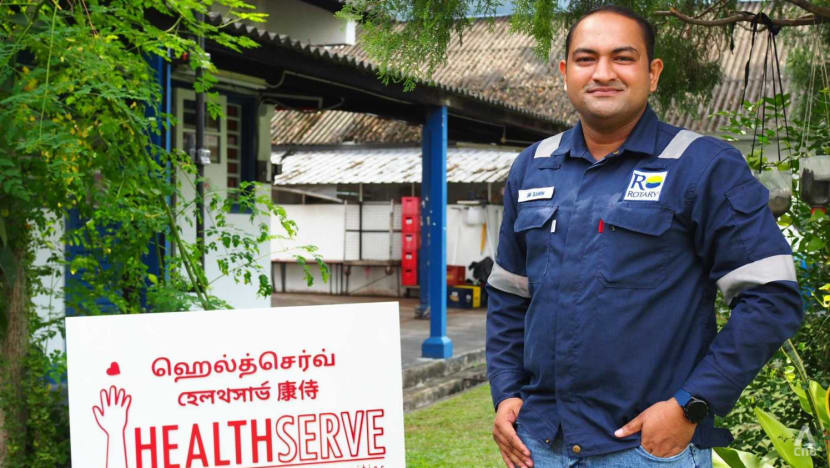
Hasan Samim is a peer support leader, and has been trained to help his fellow migrant workers who may be stressed out or depressed. (Photo: CNA/Chew Hui Min)
SINGAPORE: Last December, Mr Hasan Samim noticed that one of his co-workers on the same project did not seem his usual self and suddenly became very quiet.
"For almost three years, he didn't go back home ... So his father recently passed away, but he can't go back as well, so he was mentally fully depressed," said Mr Hasan, a Bangladeshi electrical and instrumental technician with Rotary Engineering.
At the same time, his friend was worried that if he went home, he would not be able to return to Singapore to work. But he did not know how to explain this to his company as he was not proficient in English.
Mr Hasan stepped in to speak to his friend's supervisor, and the employer arranged for his friend to take two months' leave to visit his family in Bangladesh.
Mr Hasan, 31, is a peer support leader who was trained by HealthServe in December to spot such signs of distress among his co-workers or dormitory mates and to help them if possible.
He feels that his peers can more easily share their problems and issues with him as they are "on the same level", and there is no language barrier.
"So if I asked him in my (our) own language, maybe he can explain everything, understand everything. That is the difference," he said.
The initiative is part of the Manpower Ministry's Project Dawn, which includes a series of mental health support measures to help migrant workers here.
The ministry's Assurance, Care and Engagement (ACE) team is working with the Institute of Mental Health as well as non-governmental organisations Migrant Workers' Centre and HealthServe on this.
As part of the peer support leader training, Mr Hasan was taught to identify signs of stress, breathing techniques and how to approach and listen to a friend in distress.
Mr Hasan's phone number is circulated at the dormitories as one of the people workers can seek help from. Mr Hasan said that he has got calls from a number of workers.
"Previously these symptoms are in front of me, but I didn't know how to help ... So after I'm getting this training, I'm fully aware and I really understand what is the main problem," Mr Hasan told CNA in an interview on Tuesday (Feb 15).
Mr Hasan, who has worked in Singapore for nine years, is also a "friend of ACE", helping ACE to resolve workers' needs at Westlite Papan dormitory, where he lives. So far, he's managed to identify, engage and support three friends in his dormitory who he suspected had mental health problems, said HealthServe.
"NOW I HAVE DONE SOMETHING FOR MYSELF"
Mr Hasan shared that he had a tough time when he first came to Singapore, particularly when his English was not good and he had problems understanding instructions.
He slowly improved his basic English skills with online resources such as YouTube videos, he said. His life here began to get better as he picked up more English and was sent on training courses by his company.
He wants to help others like him, and helping others has made a difference to his life as well. The skills he picked up, such as meditation and ways to relax, have helped him to manage his own stress, as well as look out for others in distress.
"(Before) it's just work and come home, rest, sleep, then I go to work again. But now I have done something for myself, for my own happiness. So it's (brought about) very good changes in my life," he said.
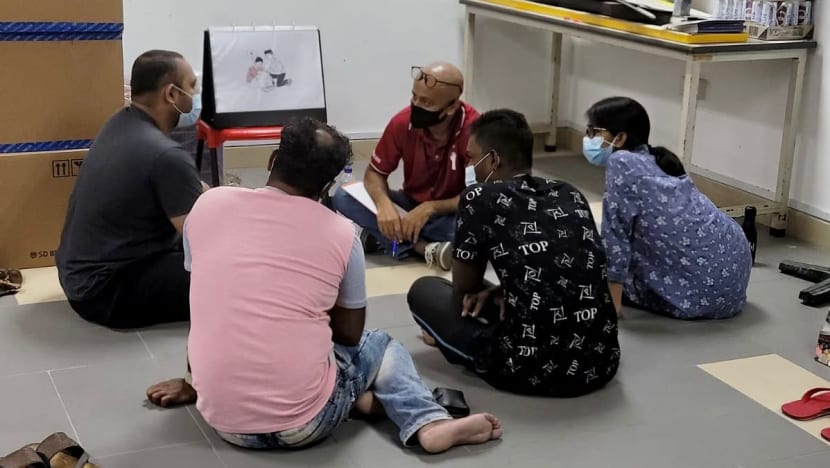
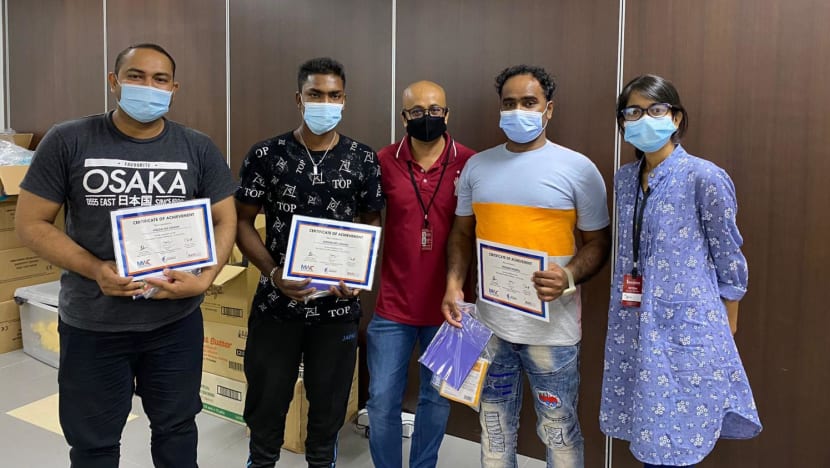
Project Dawn picked up speed last year with concerns about migrant workers' mental health as they continued to be under movement restrictions that were imposed to curb the spread of COVID-19.
There were more than 300,000 foreign workers holding work permits in the construction, marine shipyard and process sectors as of June 2021.
Over the past year, HealthServe has trained up to 170 peer support leaders and it is looking to expand the programme beyond the dormitories to migrant workers living in the community, said a spokesperson.
One of the main problems affecting many workers is the border restrictions that make it hard for them to visit their family, Mr Hasan said.
He himself has never met his 19-month-old son in person but he will stay in Singapore for the time being as he does not want to risk losing his current job.
"Three years, we are not free to go and meet our parents. Some have newborn babies, almost one year plus, but they cannot go and meet ... that feelings they cannot control," he said.
"A lot of people are stuck ... they want to go back but they can't make this decision because they don't have enough money (for quarantine fees) ... also they have a lot of restrictions to come into Singapore again."
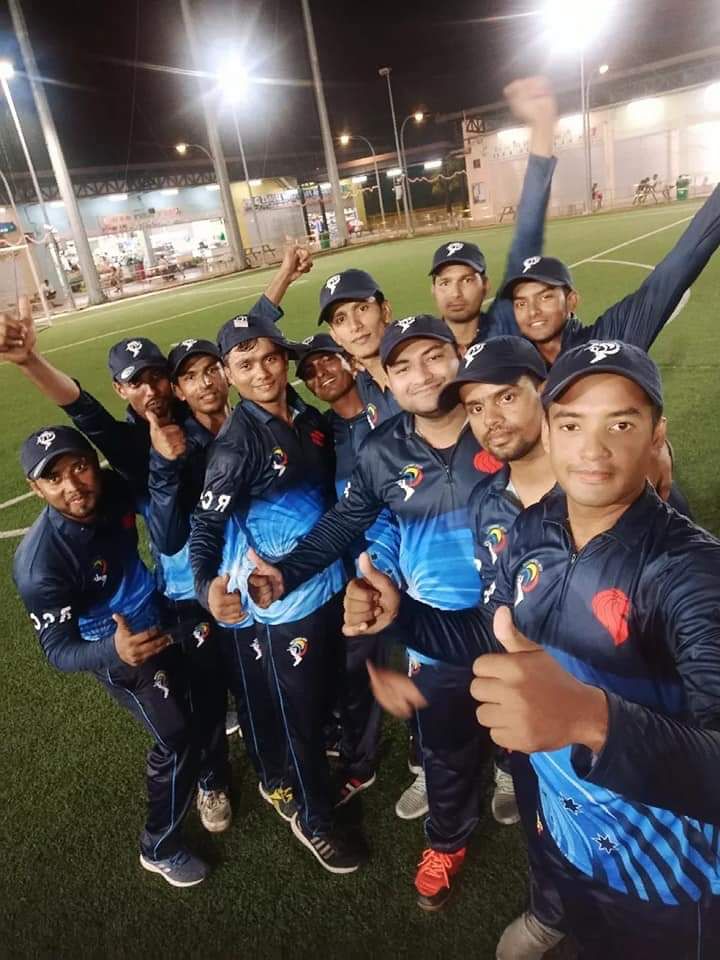
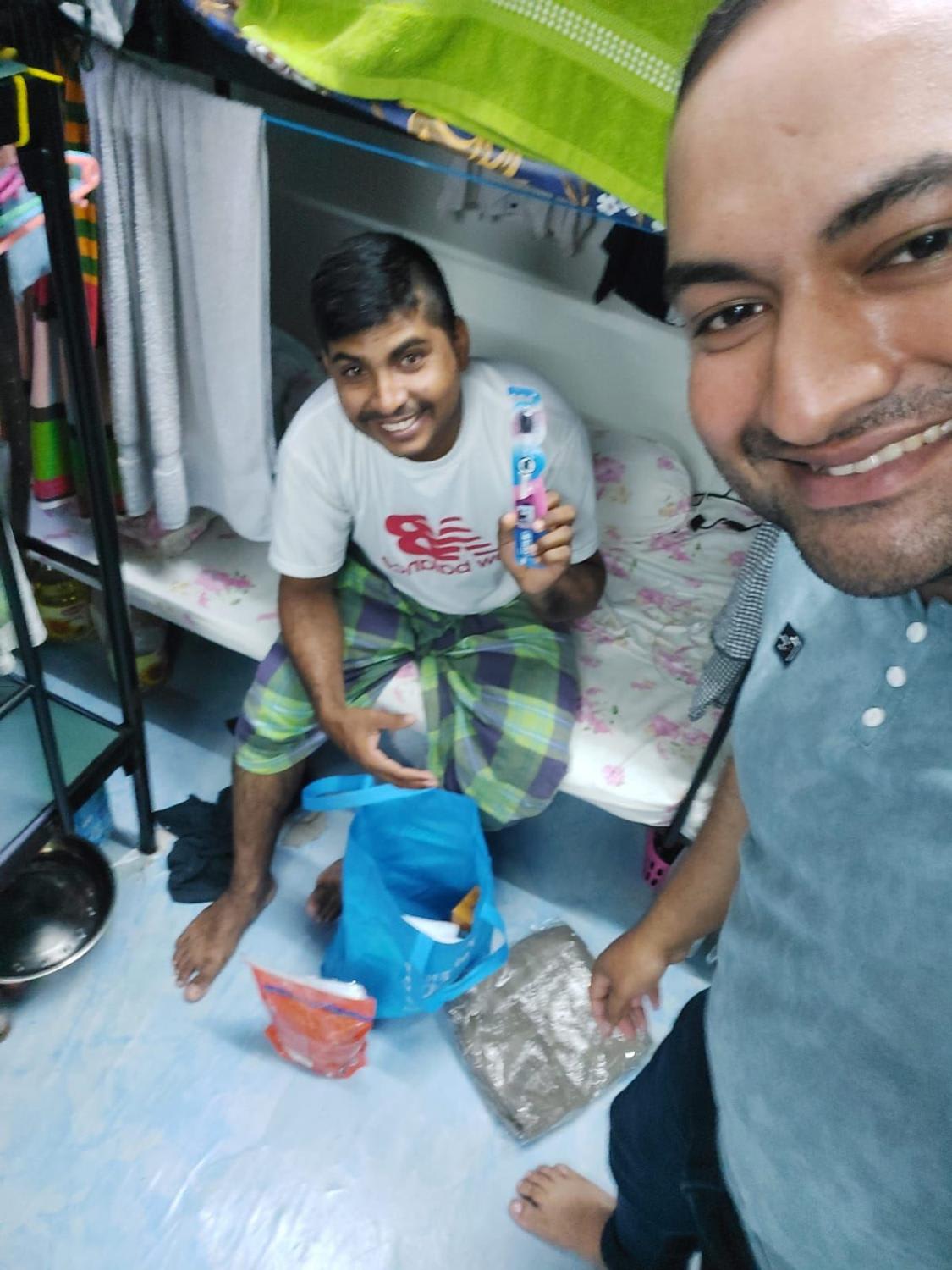
Those staying here also feel cooped up as there is a quota for visits to the community. From Dec 3, authorities have allowed 3,000 vaccinated migrant workers a day to visit any location in the community, for up to eight hours a visit.
The workers have to pre-book a slot and take a COVID-19 antigen rapid test before they leave their dormitories.
They can also go to recreation centres around the island which have sports facilities, supermarkets and other services for the workers.
To help them get out in the open more, Mr Hasan has been organising games for his fellow workers at the Terusan Recreation Centre.
Using chatgroups on WhatsApp or Facebook, Mr Hasan gathers workers to play football, badminton or cricket on weekends. He invites workers from Bangladesh and India, and he can speak Hindi and Tamil as well as English and his native Bengali.
"You have to do a bit of exercise ... If you come and play badminton, your blood circulation is so good, also you're fit mentally and physically you're fit. Also all the depression will be gone," he said.
"They're very happy now, every week at least they can play once."















